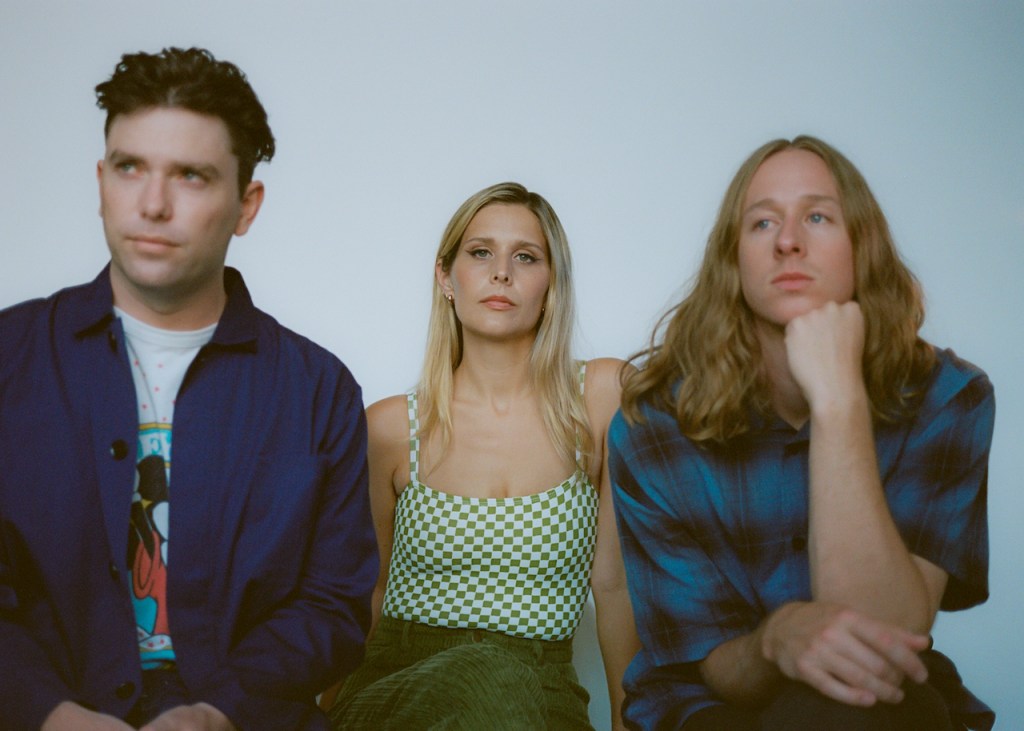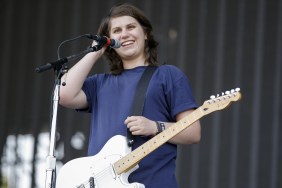“He’s up!”
Hannah Joy is a world away from the usual press day pandemonium. The Middle Kids singer, guitarist and keyboardist is bantering away with a mouthful of avocado toast, the crumbs spilling away onto tracky dacks and a Seinfeld parody shirt while she sits in the living room of her northern Sydney home. The aforementioned “he” is Sonny, Joy’s baby with Middle Kids…











